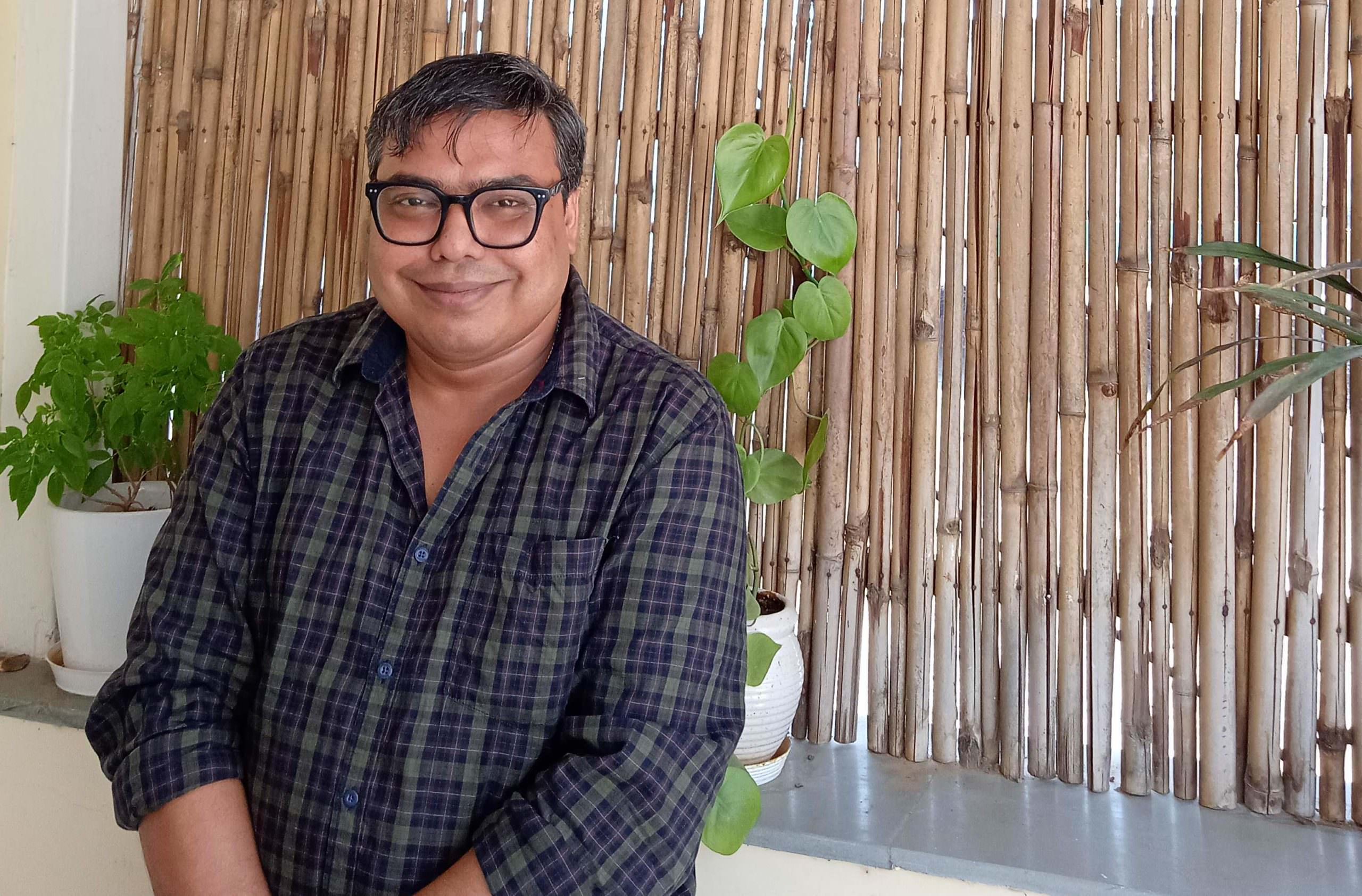
Ankur Tamuli Phukan.
Last week, we introduced one of our Mittal Institute India Fellowship recipients, Mayanka Ambade. Now, meet our second fellow, Ankur Tamuli Phukan. Ankur is a historian and has a broad research interest on issues such as festivals, populism, nationalism, migration, citizenship and ecology. His field of study is largely located in the archives of Northeast India. Ankur will be mentored by Professor Sugata Bose.
Mittal Institute: Ankur, welcome to your fellowship at the Mittal Institute. Can you elaborate on your research interests?
Ankur Tamuli Phukan: My basic thrust of research is history of a complex and layered region of South Asia. I work on the popular and nationalist mobilizations, migrations and forced migrations, developing a conversation between culture and economy, specifically around the geographical landscapes created by the Brahmaputra and Barak rivers, their tributaries and the various mountain ranges that constitute the eastern Himalayan region.
Mittal Institute: Could you give us a brief overview of the research topic that you will be pursuing over the course of your fellowship at Mittal institute?
Ankur Tamuli Phukan: I will be working on the formation of the category called indigeneity in the post-colonial context of the Brahmaputra Valley of Assam, from around the middle of the 20th century until the first decade of the 21st century.
Given the political and social situation in contemporary Assam and generally in northeast India, I think an intimate cultural genealogy remains to be traced through which the discourses of indigeneity and autonomy surfaced and expressed themselves through collective mobilization and performative idioms.
Mittal Institute: How will your alignment with the Mittal Institute benefit your research?
Ankur Tamuli Phukan: The Mittal Institute gives me a very significant opportunity, especially with the generous resources available to me at Harvard. I can scroll through different library resources, locate, and contact some of the best minds working on indigeneity and other aligned subjects in departments like Latinx Studies, African studies, border studies, and so on. This comparative scale would not be possible without the support of the Mittal Institute.
Mittal Institute: What are you most excited about for your year at LMSAI?
Ankur Tamuli Phukan: I am going to study some of the topics that I somewhat mentioned very fleetingly in my Ph.D. research but could not pursue earlier. The question of crowd, populism, and production of powerful regional identities are some of the issues that I will be focusing on for this year’s research. I will also be working in the National archives and other archives in Delhi. Secondly, my Harvard mentor is Professor Sugata Bose, one of the best minds in South Asian studies. I am excited to work closely with him.

Mayanka Ambade (left) and Ankur Tamuli Phukan (right), inaugural recipients of the Mittal Institute India Fellowship.
Mittal Institute: Could you share with us the sort of work you were involved with prior to commencing this fellowship?
Ankur Tamuli Phukan: I have been working with various research organizations in Guwahati and Kolkata in India, where I worked on development-induced displacement; peace and conflict studies; archiving the social movements; migration and forced migration studies; and river-borne erosion. I did my Ph.D. at the Centre for Studies in Social Sciences, Calcutta (affiliated to Jadavpur University). In my Ph.D, I tried to write a long historical biography of the Bihu festival of Assam.
Apply for a Mittal Institute India Fellowship
Applications will open shortly for the 2022-23 academic year. The Mittal Institute India Fellowship is meant for recent postdoctoral scholars who have completed their studies in the last five years. Fellows are expected to reside in New Delhi (India) and its vicinity for the fellowship duration of one year to actively participate in the events and intellectual life of the Lakshmi Mittal and Family South Asia Institute, India. Participation includes grant review, hosting seminars, and engaging with Harvard faculty and affiliates. Fellows will be mentored by a Harvard faculty member in their area of research. The research produced will be widely disseminated for public benefit in India.
The Fellowship begins in September 2022 and offers a stipend of INR 1,00,000 per month for the Fellowship period (one-year). This amount is to cover living costs, medical allowance, books, and research materials during the Fellowship period. For candidates outside of New Delhi, economy travel expenses for a round-trip from the recipient’s home to New Delhi will also be provided.
